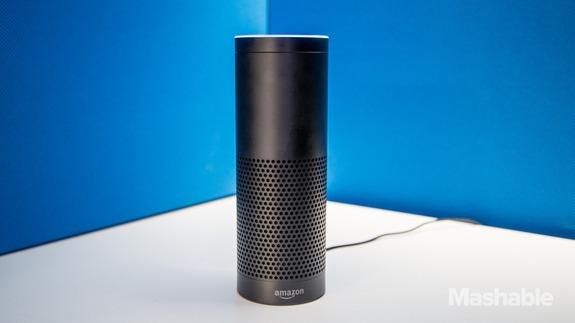-
Posts
7,282 -
Joined
-
Last visited
-
Days Won
2,416
Content Type
Forums
Blogs
Events
Resources
Downloads
Gallery
Store
Everything posted by allheart55 Cindy E
-
I couldn't agree with you more!
- 7 replies
-
- internet explorer browser
- microsoft
-
(and 2 more)
Tagged with:
-

Color Changing Car Paint
allheart55 Cindy E replied to starbuck's topic in Tech Help and Discussions
Could be.... I'm surprised that you thought of that, Lina. Too funny.:D -
For those of you who watch what you eat, here’s the final word on nutrition and health. It’s a relief to know the truth after all those conflicting nutritional studies. 1. The Japanese eat very little fat and suffer fewer heart attacks than Americans. 2. The Mexicans eat a lot of fat and suffer fewer heart attacks than Americans. 3. The Chinese drink very little red wine and suffer fewer heart attacks than Americans. 4. The Italians drink a lot of red wine and suffer fewer heart attacks than Americans… 5. The Germans drink a lot of beer and eat lots of sausages and fats and suffer fewer heart attacks than Americans. CONCLUSION: Eat and drink what you like. Speaking English is apparently what kills you.
-
What browser is he using, IE or Firefox?
-
We’ve all done it: typed too quickly and gone to Amazonco.m, Netfli.xcom, or countless other incorrect URLs. These goofs often lead to harmless dead ends, but cybersquatters are increasingly using these URLs to spread malware. A new scam, targeting both PC and Mac users, aims to install malware when people mistakenly type “.om” instead of “.com” in popular URLs, Business Insider reports. [NOTE: For the sake of your data, don’t get curious and start deliberately trying the messed-up URLs mentioned in this story just to see what happens.] The hack attack, first discovered by Endgame last week and known as “typosquatting,” was created by a group who purchased the typo’d web domains of popular websites, like Netflix, Amazon, American Express, Auto Trader, Best Buy, Blogspot, and more. Instead of the traditional “.com” URL, the malicious sites include typing mistakes like “.co” or full addresses with misplaced letters, such as “amazonc.om.” Once users are directed to the fake sites, they will see a “Flash Updater” app. The aim of the scam is for visitors to assume they need the update, hit the “download” button and install malware on their device. The issue was discovered when an Endgamer mistyped the domain as “www.netflix.co.” Instead of getting a DNS error, which would have indicated the domain he typed didn’t exist, the site redirected several times, and eventually landed on a “Flash Updater.” One of the sites “netflix.om” redirected to before landing on a Flash updater. Endgame determined that the download was Adware Genieo, which typically infiltrates the user’s system by posing as an Adobe Flash. Genieo then entrenches itself on the host by installing itself as an extension on various supported browsers. So how was this malicious group able to purchase so many domains (see a full list here)? Endgame points out that most of the misspelled URLs include the “.om” domain, which is country specific to Oman, where “the vast majority of brands” may be unregistered. What does Oman, the House of Cards, and Typosquatting Have in Common? The .om Domain and the Dangers of Typosquatting [Endgame] Look out for misspelled websites like ‘Netflix.om’ — they’re designed to trick you into downloading malware [business Insider] Source: consumerist
-
- incorrect urls
- malware
-
(and 1 more)
Tagged with:
-
Microsoft has asked a federal judge permission to serve Comcast with a subpoena to identify alleged software pirates who have activated thousands of copies of Windows 7 and Office 2013 using stolen or abused codes, according to court filings. "For an unknown period of time -- but for at least the past three years -- the Infringing IP Address has been used to activate thousands of Microsoft product keys," Microsoft said in a March 4 motion to a Seattle federal court. Those keys had been stolen from the company's supply chain, used more times than legal, were actually keys assigned to someone else or were activated outside the geographic region they were intended for. Microsoft, like many other software vendors, uses product keys -- in Microsoft's case, a 25-character alphanumeric string -- to individually lock a license to a device. Keys are a core component of Microsoft's anti-piracy technology. The Redmond, Wash. company wants the authority to serve Comcast with a subpoena that would force the ISP (Internet service provider) to identify the subscriber at the IP address Microsoft claimed was the origin of the product activation requests. If Comcast has assigned the IP address to a downstream ISP -- not uncommon -- Microsoft wants that ISP's name and the right to subpoena that firm as well. "Despite reasonable efforts, including various investigative techniques, Microsoft has been unable to positively identify the Doe Defendants," Microsoft's motion stated. "At present, the best information Microsoft has for identifying the Doe Defendants is the Infringing IP Address and the dates and times the Doe Defendants used the Infringing IP Address to activate product keys." Microsoft has changed how it activated its software numerous times in the past, but the basic principles have remained the same: A product must be activated to continue to work with full functionality. With Windows 10, Microsoft again altered activation by debuting -- in some, but not all cases -- something called "digital entitlement," which stores the activation status of a device on Microsoft's servers. Once an activation status is set to a device, it should remain activated, even after a reinstallation of the software (with some caveats, such as significant changes to the hardware). Digital entitlement can be thought of a move to do away with, or at least reduce reliance on, the 25-character keys, and so as a new way to combat the piracy alleged in the court case. Older software, including Windows 7 and Office 2013, however, continue to rely on product keys for activation. Source:computerworld
-
Yeah, I still have it but I rarely use it. I have the last freeware version that he made. That version is still available.
-
Bitcoin was almost dealt a major blow today when it seemed Microsoft would stop accepting the cryptocurrency for digital purchases through customer accounts. But the company now says an update to a support page was posted erroneously and contained "inaccurate" information. Bitcoin, Microsoft says, will still be honored. "We continue to support Bitcoin for adding money to your Microsoft Account which can be used for purchasing content in the Windows and Xbox stores," a Microsoft spokesperson said in a statement provided to The Verge. "We apologize for inaccurate information that was inadvertently posted to a Microsoft site, which is currently being corrected." It's unclear how, exactly, the information made its way to the page. But Bitcoin boosters will take some solace in the fact that one of the currency's major corporate bastions is still safe. Source: theverge
- 1 reply
-
- bitcoin
- inaccurate
-
(and 2 more)
Tagged with:
-
The federal government’s courtroom war with Apple over iPhone encryption may be grabbing all the headlines, but a number of tech companies offer devices, apps, and messaging services with privacy settings that frustrate police investigations. And according to a new report, the Facebook-owned WhatsApp instant messaging app could be the next to face a legal challenge from the feds. This is according to a NY Times story, which claims that WhatsApp — the world’s most popular instant messaging service — has been fighting law enforcement efforts to access users’ conversations. Not that long ago, WhatsApp was one of many messaging apps that was light on encryption, meaning that even though messages were encrypted in transit, the folks at WhatsApp could still access that content if it chose to. But the company has since added encryption that effectively locks out eavesdropping at any point in the transmission. Even if a court grants police wiretap order, this end-to-end encryption bars them from accessing users’ conversations. And in fact, reports the Times, courts have been issuing these wiretap orders only to find out that the sought-after transmissions can not be decrypted. This dispute is slightly different from Apple’s battle with the FBI. In that case, the court has ordered Apple to aid law enforcement in unlocking a terrorist’s iPhone; it’s not a matter of monitoring a text or voice conversation. With WhatsApp, the issue issue is the government’s current inability to listen in on these transmissions or access any old conversations. The question is: Should law enforcement officials be able to get a court to compel WhatsApp and other companies into weakening their encryption to comply with wiretap orders? Yes, it would allow police to monitor conversations between suspects in a criminal investigation. But it would also leave open a door for hackers to listen in on any user’s WhatsApp chat. The issue of app and messaging security may be a more controversial privacy question than the ongoing iPhone debate. After all, even if police are able to unlock a secure phone, the messages and other content on that device may still be locked down through means that have nothing to do with the phone’s operating system. So why hasn’t the Justice Department made a huge legal stink about the WhatsApp encryption? Possibly because the government is waiting for a case like the Apple dispute, where a company’s failure to comply with a court order could be used against them in the public sphere. Peter Eckersley from the Electronic Frontier Foundation tells the Times that the FBI and DOJ are “waiting for the case that makes the demand look reasonable.” Even though Facebook and WhatsApp have yet to face serious legal consequences in the U.S., end-to-end encryption has landed the company in hot water elsewhere in the world. Earlier this month, Brazilian authorities arrested Facebook exec Diego Dzodan after the company balked on complying with a court order to turn over WhatsApp-related information to police in a drug trafficking case. Dzodan has since been released. Source: consumerist
-
- eavesdropping
- users' conversations
-
(and 1 more)
Tagged with:
-
Ants are incredibly strong for their size on their own, and can carry enormous weights when they work together. This inspired a team of Stanford University researchers to try and get many tiny robots to team up and combine their efforts. The result is astonishing: a team of six microrobots, each the size of a cockroach and weighing 3.5oz in total, managed to pull a car weighing 3,900lb across a polished concrete floor. David Christensen, one of the researchers attached to the Biomimetics and Dexterous Manipulation Laboratory at Stanford, said that the demo is the functional equivalent of six humans moving a weight equal to that of the Eiffel Tower. The implications could be huge: instead of working to develop individually stronger robots, we could instead focus on multiplying their efforts by getting them to work together and speed up processes like construction and cargo transport. Christensen, along with fellow grad student Srinivasan Suresh, researcher Katie Hahm and mechanical engineering professor Mark Cutkosky, published a paper on this project last month. They will present “Let’s All Pull Together: Principles for sharing large loads in microrobot teams” in May at the International Conference on Robotics and Automation in Stockholm, Sweden. Source: thenextweb
-
- enormous weights
- microrobots
-
(and 1 more)
Tagged with:
-
Microsoft has stopped accepting Bitcoin payments for apps and content in its Windows 10 store for desktop and mobile, reveals an updated support page spotted by Softpedia. That’s a bummer for fans of the cryptocurrency hoping for it to gain more mainstream traction. The company announced support for Bitcoin in December 2014. With Windows 10 becoming available across a wider range of devices lately, it could have been one of the largest platforms where you could spend your digital dough. Microsoft says that your existing account balance can still be used to buy things from its store, but you can’t add more Bitcoin or get a refund of what’s left. It isn’t clear exactly why Microsoft decided to shut down its experiment; low adoption could have prompted the move. There’s also been instability amidst the Bitcoin community: a debate among its developers concerning the size of blocks used to record transactions, prompted a group of them to break off from the core team and fork the original code. We’ve contacted Microsoft for more information and will update this post when we hear back. ➤ Microsoft’s Windows 10 Store No Longer Accepting Bitcoin [softpedia]
-
- bitcoin
- cryptocurrency
-
(and 1 more)
Tagged with:
-
. Not sure how vivid your memory is, but I certainly remember Mega Man looking a lot more … two-dimensional. Of course, he was. And so were Mario, Kid Icarus, and all the other classic NES characters. They’re popping off the screen now thanks to a new Nintendo PC emulator called 3DNES. The project, through some programmer wizardry, adds a third dimension to playable computer ROM versions of classic Nintendo games. (This , but it is probably the most impressive go at it that I’ve seen.) I won’t bog you down with the tech details behind how 3DNES works. Just understand that it’s pretty ingenious, though still a buggy work in progress that lives in demo form on a Web page. Thus, I’ve decided to dig in to 3DNES for you and GIF-ify 3D’d versions of a handful of the greatest NES games. Contra Tetris Mega Man 2 Metroid Ninja Gaiden Excitebike Duck Hunt Mike Tyson’s Punch-Out!! Super Mario Bros. 2 Super Mario Bros. 3 Source: yahoo
-
You're welcome, Peter. I'm glad that it worked.
-
I've seen this happen many times with NVidia, Peter. It's not peculiar to Windows 10. To delete it, you'll have to go your control panel and select the NVIDIA Control Panel Click on Manage 3D Settings. There should be an option there called Shader Cache. Set it to off and reboot your machine. Let us know how you fare with this.
-

Help BleepingComputer Defend Freedom of Speech
allheart55 Cindy E replied to starbuck's topic in Tech Help and Discussions
That's awesome! Thanks for letting us know, Pete. -
The Amazon Echo, our favorite gadget of 2015, has quickly become the smart home hub that everyone is gushing over. With voice commands, the ability to play music from the cloud, fast weather and sports scores, and control of your smart home devices — all done in a fast, intuitive way — it feels like something straight out of Star Trek. Because the Echo is always listening for commands, users have started discovering that it can be "hijacked" whenever it hears it's activation phrase "Alexa," even if it's not from a person that's actually in the room. Several listeners of the NPR-produced Listen Up radio show wrote to its host Rachel Martin to inform her that a segment discussing the Echo had triggered their own Echo devices. See also: The best smart devices that work with the Amazon Echo and the new Tap One listener, Roy Hagar, said the radio segment "prompted his Alexa to reset his thermostat to 70 degrees." Another listener said his Echo "started playing an NPR News summary" and another said his "unit started going crazy, too." A similar case of electronics hijacking happened in 2014 when Breaking Bad star Aaron Paul accidentally turned Xbox Ones on; peoples' Xbox Ones heard the "Xbox on" voice command from the TV ad he was in and thought it was coming from a real person in the room. By default, the Echo is named Alexa and listens for the "Alexa" voice trigger. Simply telling the Echo to do something without using the trigger command will not activate it. So unless a radio show or TV program actually says your Echo's trigger command, you're safe — it's not like the Echo will go rogue on its own for no reason. Using the Alexa app, you can change the voice assistant's name to Amazon, which will then activate when it hears "Amazon." Renaming Alexa to Amazon is one way to get around the voice-command hijacks, at least until Amazon lets you assign your own custom name (although that may never happen). Saying "Amazon, turn on the lights" is, however, not as friendly-sounding as calling for Alexa, a key reason Apple and Microsoft have both personified their voice assistants — Siri and Cortana, respectively. For all the smarts Alexa has, it's not very intelligent when it comes to picking out voices that are in the room and those from a TV, radio or another speaker. As voice-controlled devices become more ubiquitous and the Echo becomes even more of a smart home centerpiece, larger security concerns will arise. Amazon, for example, could incorporate voice biometrics into future Echos that can identify specific voices and verify them, before letting them order Alexa around. Apple's Siri already works like this, although, with the right conditions, that isn't foolproof either. Source: yahoo
-

win 10, send word 2010, as attachment
allheart55 Cindy E replied to peterr's topic in Tech Help and Discussions
Good, thanks for letting us know. :thumbsup: I don't usually like to recommend something if I haven't tried it out but I have heard good things from other tech's about the eM client. -

win 10, send word 2010, as attachment
allheart55 Cindy E replied to peterr's topic in Tech Help and Discussions
You're welcome, anytime, Peter! :D -
-
Good news!
-

win 10, send word 2010, as attachment
allheart55 Cindy E replied to peterr's topic in Tech Help and Discussions
That's great, Peter. Let us know if it works out for you. -

win 10, send word 2010, as attachment
allheart55 Cindy E replied to peterr's topic in Tech Help and Discussions
I still use Thunderbird and I like it. It has a small footprint and does everything that I need it to do. I have heard good things about eM client but I have never used it myself. It does have a 30 day free trial and at the end of 30 days, you can either upgrade to the Pro or use the free license. http://www.emclient.com/download I'm sure some of our other tech's will have better suggestions for you. -
All is good. I hope the same with you.








